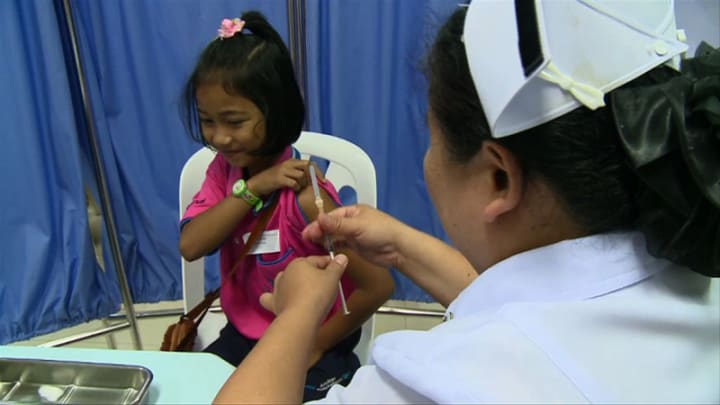Prescreening necessary before dengue vaccine use, says WHO expert advisory group

The group made the new recommendations following their two-day meeting last week.
While the new recommendation by SAGE is meant to maximize the public health benefits of the vaccine while minimizing risks, it poses limitations in terms of the vaccine’s widespread use. There are currently no rapid diagnostic tests at point of care available to know whether patients have previously been infected with the dengue virus.
“There are tests available, but these are not point of care tests, so their implementation would be cumbersome, and require that the person returns,” Dr. Joachim Hombach, SAGE’s executive secretary, said in a press conference.
“We see indeed a significant obstacle in using this vaccine that way. On the other hand, we are confident that this also spurs the development of rapid diagnostic tests that then could be readily used.”
There are several rapid diagnostic tests available in the market, but none have been validated or licensed when it comes to determining an individual’s dengue serostatus.
“Various ELISA-based assays exist such as the dengue IgG ELISA, and many countries actually have access to these diagnostic tests. The disadvantage of such laboratory assays are that they cannot be used at the point of care as blood sample needs to be taken, then it takes 1-3 days to receive the results, sometimes even longer,” Hayatee Hasan, WHO technical officer for Immunization, Vaccines and Biologicals in Geneva, told Devex.
Asked whether the onerous recommendations could limit the vaccine’s long-term existence, the group said that’s something the manufacturer has to deal with.
“Whether this has repercussions on the manufacturer is something which is secondary. For us, it is very important that we signal in which way we think this vaccine could be used, even if ... the options for using it may not be available immediately. But maybe for the medium term. This is for the company to decide in terms of how they cope with this,” Hombach said.
Dengvaxia is currently the only vaccine licensed against dengue.
The vaccine came under scrutiny after Sanofi Pasteur, its manufacturer, revealed in late 2017 of the potential severe effects of the vaccine in seronegative individuals, or essentially those who’ve not been previously infected with the dengue virus.
The issue caused widespread uproar in the Philippines, in particular, where over 800,000 schoolchildren have already received the vaccine. A senate inquiry commenced after reports emerged that 14 children reportedly died from the vaccine. The Department of Health formed a panel of experts to probe this. Initial findings by the panel showed three of the cases have “causal association” to the vaccine, but they stressed the need for further tests before they can arrive to a final conclusion.
“The results of this evaluation are to be forwarded to the Pharmacovigilance Team of the DOH for further investigation and/or signal detection for possible new causal association. Only then can the investigation of these cases be completed and the results considered final,” it said in the report.
Following the controversies, the Philippine Department of Health has decided to suspend its dengue immunization program.
The WHO will be aligning its position on the use of the dengue vaccine with the SAGE recommendations, said Hasan. The U.N. body’s revised position paper on the subject will be published in September 2018.
source: https://www.devex.com/

